Teaching & Learning Center honors innovative teachers
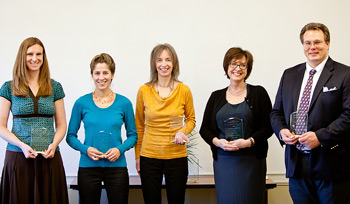
From left: Sarah Mason, Grace Wetzel, Christa Colyer, Cynthia Gendrich, Jack Dostal
Every year the Teaching and Learning Center honors up to five faculty for innovations in their teaching. This year’s winners span the sciences, the arts, literature and mathematics, but all share the dedication to teaching and the willingness to take risks that result in better student learning.
Find out more about the innovative work of Christa Colyer (chemistry), Cynthia Gendrich (theater), Grace Wetzel (English), Jack Dostal (physics), Stewart Carter (music) and Sarah Mason (mathematics).
Christa Colyer, chemistry
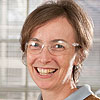 After 16 years of teaching College Chemistry 1, Colyer completely revamped her course to make her 8 a.m. class come alive. Colyer said: “Teaching such content from a traditional chemistry textbook in a linear fashion risks losing the highly motivated students who voluntarily opted to take this 8 a.m. class section. But it also risks losing the students who lack confidence in their chemistry preparation from high school, or who might prefer to sleep in rather than trek to Salem Hall to be ‘talked at’ for 50 minutes. Since chemistry is an experimental science, driven by problem-solving and discovery, it makes sense to teach course content by way of problem-solving and discovery-based methodologies.” The result was an integrated strategy, involving lectures supplemented by clicker questions, tutorials, case studies, online problem sets, and “time-on-task” prelecture videos.
After 16 years of teaching College Chemistry 1, Colyer completely revamped her course to make her 8 a.m. class come alive. Colyer said: “Teaching such content from a traditional chemistry textbook in a linear fashion risks losing the highly motivated students who voluntarily opted to take this 8 a.m. class section. But it also risks losing the students who lack confidence in their chemistry preparation from high school, or who might prefer to sleep in rather than trek to Salem Hall to be ‘talked at’ for 50 minutes. Since chemistry is an experimental science, driven by problem-solving and discovery, it makes sense to teach course content by way of problem-solving and discovery-based methodologies.” The result was an integrated strategy, involving lectures supplemented by clicker questions, tutorials, case studies, online problem sets, and “time-on-task” prelecture videos.
Cynthia Gendrich, Theater
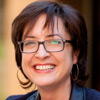 Usually Development and Performance is either text-focused or physical-theatre focused. This semester, Gendrich decided to “combine research, playwriting, highly concentrated movement, and a design process.” Her other innovations included a historical research component, the regular incorporation of living artists and experts, all of which resulted in a coherent 40-minute theatre piece that was presented publicly. To give students multiple ways of thinking and working, and to disrupt any singular authority they might ascribe to her, she regularly brought in guest teachers and theatre makers who were either top artists in making devised theatre, or trained by top people. Genrich’s final take on her new course is: “Students thereby learned that this kind of work requires trust — in each other, in rigorous inquiry through intellectual study, but also through physical, emotional, and vocal exploration and fearless editing.”
Usually Development and Performance is either text-focused or physical-theatre focused. This semester, Gendrich decided to “combine research, playwriting, highly concentrated movement, and a design process.” Her other innovations included a historical research component, the regular incorporation of living artists and experts, all of which resulted in a coherent 40-minute theatre piece that was presented publicly. To give students multiple ways of thinking and working, and to disrupt any singular authority they might ascribe to her, she regularly brought in guest teachers and theatre makers who were either top artists in making devised theatre, or trained by top people. Genrich’s final take on her new course is: “Students thereby learned that this kind of work requires trust — in each other, in rigorous inquiry through intellectual study, but also through physical, emotional, and vocal exploration and fearless editing.”
Grace Wetzel, English
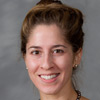 This course involved students in civic outreach with a prison education program. Specifically, students participated in a peer review writing activity with prisoners. Prior to meeting in person, students and prisoners read and responded in writing to George Orwell’s “The Hanging” — a text that students interpreted comparatively alongside a representation of capital punishment from a different genre, and prisoners interpreted in the context of their own institutional experiences. Student and prisoner pairs met for one hour during the exchange to read and discuss their papers together before reconvening for a group debriefing. Wetzel chose peer review as a means to inspire students’ active public citizenship and development as writers. Students were challenged to stretch their boundaries and consider prisoners’ perspectives on vital social issues such as the death penalty, the American prison industrial complex, and government funding for prisoner education.
This course involved students in civic outreach with a prison education program. Specifically, students participated in a peer review writing activity with prisoners. Prior to meeting in person, students and prisoners read and responded in writing to George Orwell’s “The Hanging” — a text that students interpreted comparatively alongside a representation of capital punishment from a different genre, and prisoners interpreted in the context of their own institutional experiences. Student and prisoner pairs met for one hour during the exchange to read and discuss their papers together before reconvening for a group debriefing. Wetzel chose peer review as a means to inspire students’ active public citizenship and development as writers. Students were challenged to stretch their boundaries and consider prisoners’ perspectives on vital social issues such as the death penalty, the American prison industrial complex, and government funding for prisoner education.
Wetzel said: “Student-prisoner peer review is innovative because it levels the hierarchical structure of alternative service models like tutoring, initiates reciprocal dialogue about writing and the American prison industrial complex, and carries potential for producing mutuality. This cultivated an exchange that promoted reciprocal dialogue and complicated cultural representations of prisoners. … There is no better way to introduce first-year students to new perspectives and prepare them to write for different audiences than to place them in radically different environments.”
Jack Dostal, Physics and Stewart Carter, Music
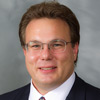
Dostal
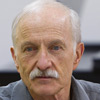
Carter
Physics 115 is a one-semester interdisciplinary physics course designed for all students, particularly those with interests and/or majors outside of the natural sciences. Dostal and Carter wrote: “Musical acoustics is a unique field of study in which art and science interact on an equal footing. The course builds on basic physical concepts such as energy, work, power, waves, and vibration – and applies them to the art of music, thereby demonstrating and revealing the basis of this art form. This course uniquely combines the science of both physics and music using many different forms of instruction, including in-class discussion and tutorials, listening exercises, laboratory experiments, and hands-on experience with instruments from recording and analyzing the sound spectra from carillon bells to building their own flutes.”
Read more in the WFU News Center »
Sarah Mason, Mathematics
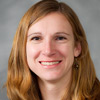 Mason designed a new course that focuses on using mathematical computations to evaluate sustainability claims. This course includes three main innovations: 1) conceptual, 2) practical, and 3) a connection to the community in which we live. The conceptual innovation in this course is the application of simple mathematics to complex issues such as estimating how much energy is consumed through activities and uses such as transportation, and then also estimating how much energy could be produced using sustainable sources such as wind, solar, etc. The practical innovation is the hands-on component. Through a variety of guest lecturers, field trips and experiments, the students interact with the material in ways that deepen their experience and understanding. Students were able to connect to their community through Wake Forest-related problems and examples, such as exploring the installation and usage of solar panels on The Barn.
Mason designed a new course that focuses on using mathematical computations to evaluate sustainability claims. This course includes three main innovations: 1) conceptual, 2) practical, and 3) a connection to the community in which we live. The conceptual innovation in this course is the application of simple mathematics to complex issues such as estimating how much energy is consumed through activities and uses such as transportation, and then also estimating how much energy could be produced using sustainable sources such as wind, solar, etc. The practical innovation is the hands-on component. Through a variety of guest lecturers, field trips and experiments, the students interact with the material in ways that deepen their experience and understanding. Students were able to connect to their community through Wake Forest-related problems and examples, such as exploring the installation and usage of solar panels on The Barn.
Mason said that her “fundamental goal in this course is for the students to be confident and competent in evaluating claims about the environment for themselves, which of course will carry through to many other aspects of their lives as well.”
Read more on the Sustainability website »
Categories: University Announcements
